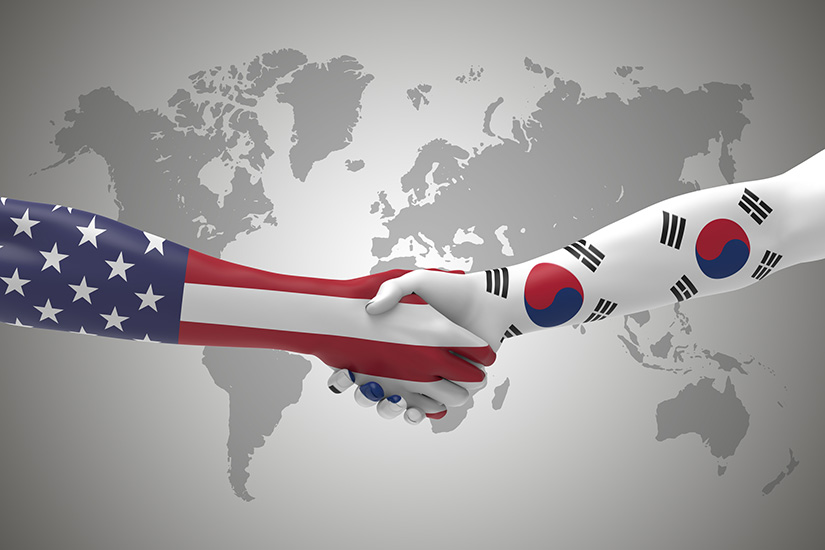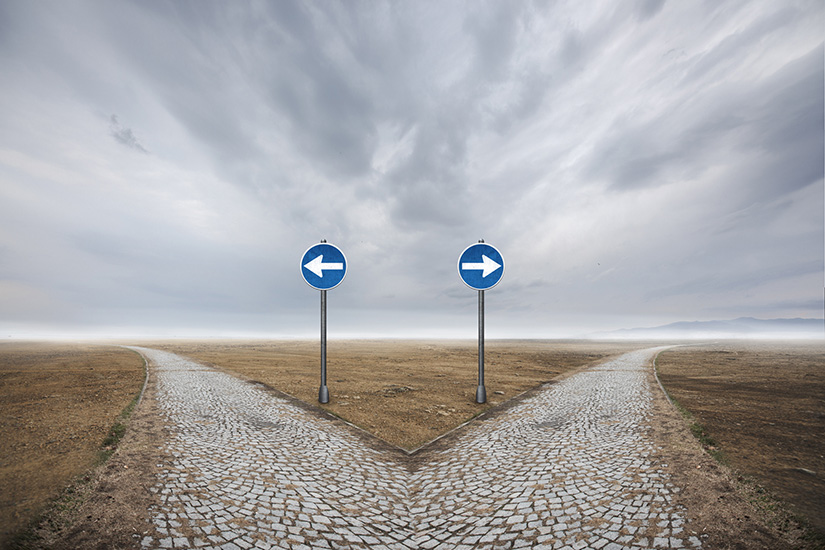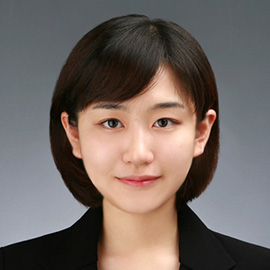Introduction
South Korea’s new Lee Jae-myung administration is betting on “pragmatic diplomacy” to navigate the storm of a volatile geopolitical landscape, at a time when the core tenets of its foreign policy—pursuing both a strong alliance with the U.S. and a close economic partnership with China—are under growing strain. In his inaugural address at the National Assembly on June 4, President Lee declared that “through pragmatic, national-interest-centered diplomacy, we [South Korea] will turn the crisis of global economic and security shifts into opportunities to maximize national interest.”[1]
As a liberal leader, Lee seeks to rebrand himself and his administration as centrist and pragmatic, representing a significant departure from former President Yoon Suk Yeol’s value-based diplomacy. The rhetoric is clear, yet Lee’s pragmatic diplomacy leaves considerable room for interpretation, with lingering questions about how it will take shape in actual policy. Internal dynamics between advocates of autonomy and proponents of a strong U.S. alliance will offer important signals about the Lee administration’s future foreign policy direction. Against this backdrop, this paper explores Lee’s pragmatic turn and its underlying rationale, examines the alliance–autonomy dynamics, and briefly discusses the challenges it faces.

From Value-based to Pragmatic Diplomacy
Lee and his circle have been active in recalibrating South Korea’s foreign policy from value-based diplomacy to pragmatic diplomacy centered on national interests. The administration articulated pragmatic diplomacy as “a sophisticated diplomatic strategy that balances values and practical benefits, secures strategic autonomy, and manages threats while seizing opportunities.”[2] Aligned with this strategic orientation, Seoul is pursuing diversified diplomatic relations to reduce overreliance on specific countries or regions and enhance flexibility.[3]
Lee’s first statement as president signals that pragmatic diplomacy will guide his administration to “strengthen the U.S.–Korea alliance, bolster Korea–U.S.–Japan cooperation based on it, and manage relations with neighboring countries from a practical, national-interest perspective.”[4] His words clearly indicate Lee’s shift, from left-leaning nationalism toward a more moderate and pragmatic stance. Lee, in 2021, referred to U.S. Forces Korea (USFK) as “occupation forces” and claimed before the U.S. Senate that the United States was partly responsible for Korea’s colonization by Japan, citing the Taft-Katsura Agreement.[5] Moreover, he repeatedly criticized Republic of Korea (ROK)–U.S.–Japan joint exercises, calling them “an extreme pro-Japanese act” and “a defense disaster.”[6] These remarks stand in stark contrast to Lee’s cordial gestures toward China, notably demonstrated during his meeting with then-Chinese Ambassador to South Korea Xing Haiming, who at the time delivered a pointed message, “those who bet now on China’s defeat [to the U.S.] will surely regret it later.”[7]
Lee’s shift became evident as the prospect of an early presidential election grew alongside Yoon’s impeachment and the upcoming second term of Donald Trump. Since then, Lee has doubled down on affirming his cooperative posture toward South Korea’s ally, the U.S., and its partners, especially Japan. In appreciating the ROK–U.S. alliance’s role in overcoming political turmoil following the martial law declaration, he reaffirmed his commitment to supporting South Korea’s larger role in global peace as a member of the liberal democratic camp.[8] In addition, his emphasis on Korea–U.S.–Japan and Korea-Japan cooperation in light of the growing need for solidarity among liberal democracies[9] stands out. While liberal administrations have often stressed the ROK–U.S. alliance, national interest, or a balanced approach in their foreign policy, it has been rare for liberal leaders to explicitly promote Korea–Japan or Korea–U.S.–Japan cooperation—let alone invoke liberal democratic solidarity, which tends to resonate more with conservative narratives.
However, this shift should be considered in parallel with pragmatic diplomacy’s emphasis on relationships with China, Russia, and North Korea, which liberals argue were strained under the Yoon government. Lee and his Democratic Party, the largest among the opposition, were highly critical of the Yoon administration’s perceived “biased, bloc-centered, and value-based diplomacy” that relied too heavily on specific countries and failed to align with national interests.[10] This criticism, along with Lee’s pragmatic diplomacy, reflects to some extent the politicization of foreign policy; however, more fundamentally, it stems from differing threat perceptions between liberals and conservatives—a divide that has become increasingly pronounced amid escalating U.S.–China strategic competition.[11]
Liberals advocating greater autonomy are primarily concerned that great power competition, which is dividing the world, may constrain South Korea’s autonomy and provoke unnecessary regional tensions. While acknowledging the significance of the ROK–U.S. alliance, they have been cautious about aligning too closely with any one country, even with key allies. Reflecting this stance, Lee explicitly stated that choosing one side amid escalating U.S.–China tensions is “the most dangerous way of thinking.”[12] This diverges from the conservative threat perception, which is deeply concerned about North Korea and its coalition’s challenges to peace and security on the Korean Peninsula, as well as to liberal democracy and its values, leading conservatives to pursue cooperation among partners with shared values to address these challenges. In this context, it is unsurprising that the new administration advocates shifting from value-based diplomacy to pragmatic diplomacy in order to cultivate balanced ties with regional powers such as China and better navigate the volatile global security and economic landscape.[13]

Pro-Alliance and Pro-Autonomy Camps in Lee Administration
The flexible and adaptive nature of pragmatic diplomacy makes its trajectory harder to predict. As such, Lee’s choices for his foreign and security team offer important clues to the contours of Seoul’s future foreign policy. The appointment of Wi Sung-lac, a pro-alliance figure, as National Security Advisor and Lee Jong-seok, a pro-autonomy representative, as Director of the National Intelligence Service is notable in this regard. The pro-autonomy camp emphasizes reconciliation and cooperation with North Korea, while the pro-alliance camp prioritizes strengthening the ROK–U.S. alliance. While the pro-autonomy camp has traditionally held sway within the Democratic Party, Lee’s decision to appoint figures from both camps indicates an intention to pursue a more balanced approach through the calibrated inclusion of both pro-alliance and pro-autonomy voices.
Ambassador Wi, who served as Ambassador to Russia under the conservative Lee Myung-bak administration, supports a foreign policy grounded in ROK–U.S., ROK–Japan, and trilateral cooperation, while emphasizing the need to manage ties with China, Russia, and North Korea.[14] Through this approach, he advocates for a greater role for South Korea in “creating a new order amid the current U.S.–China rivalry.”[15]Ambassador Cho Hyun, former ambassador to the United Nations under the Moon Jae-in administration and the Lee administration’s first Foreign Minister, broadly aligns with Wi’s stance. He reportedly advised President Lee that he could not win the presidency without shedding the image of being anti-Japan and pro-China.[16]
Meanwhile, Lee Jong-seok, a key figure in the senior pro-autonomy camp, was one of the architects of South Korea’s Sunshine Policy toward North Korea and previously served as Minister of Unification under a liberal administration. His appointment signals the new administration’s intent to break the current deadlock in inter-Korean relations and pursue a more conciliatory approach toward Pyongyang. The appointment of Chung Dong-young as Minister of Unification further underscores its commitment in this regard. During the liberal Roh Moo-hyun administration, he served as Minister of Unification, working alongside Lee, then Deputy Chief of the National Security Council, on the Joint Statement of the Six-Party Talks in 2005[17] and the second inter-Korean summit in 2007. At his parliamentary confirmation hearing as nominee for Unification Minister, Chung did not hesitate to make clear his view that North Korea is not South Korea’s main enemy. The new Defense Minister Ahn Gyu-back, who regards North Korea as both an enemy and a compatriot, reflects a stance that is somewhat more nuanced yet aligned with the pro-autonomy camp. While he supports a stronger ROK–U.S. alliance and ROK–U.S.–Japan security cooperation,[18] he expressed an ambition to accomplish the wartime operational control (OPCON) transition to South Korea.[19] He also advocates for the resumption of civilian exchanges with the North and a revisit of the Comprehensive Military Agreement, which was signed by the Moon administration and Pyongyang to ease military tensions but later collapsed during the Yoon era, with liberals blaming Yoon for the breakdown and conservatives citing North Korea’s provocations as the root cause of the agreement’s collapse.[20]
The president’s recent rhetoric and decisions reinforce his maneuvering between the two camps. His pledge to respond to North Korean aggression with “strong deterrence” grounded in the military alliance with the U.S. reflects a pro-alliance stance.[21] At the same time, his remarks that “a peace that requires no fighting is the most secure form of security” and that his administration would “reopen communication with North Korea and build peace on the Korean Peninsula through dialogue and cooperation” highlight pro-autonomy aspects.[22] Moreover, soon after taking office, Lee, as an olive branch to Pyongyang, halted loudspeaker propaganda broadcasts toward North Korea, an act Pyongyang had regarded as a provocation tantamount to war, while simultaneously initiating summit diplomacy with Japanese Prime Minister Ishiba Shigeru. Taken together, these moves signal most clearly that his pragmatic approach will aim to simultaneously pursue alliance commitments and inter-Korean engagement through the internal dynamics between the two camps.
Internal Dynamics Between Alliance and Autonomy
Notably, prioritizing the alliance does not necessarily mean that pro-alliance figures within the liberal government fully align with a conservative, value-based approach. While supporting a strong ROK–U.S. alliance, they often seek a more nuanced approach to neighboring countries. Wi has criticized Yoon’s strategy, arguing that its overemphasis on the alliance undermined efforts to prevent China and Russia from unilaterally siding with North Korea—which Wi believes could have been avoided.[23] Cho also cautioned that the ROK–U.S. alliance and trilateral cooperation with Japan must be carefully managed, as they could inadvertently accelerate strategic alignment among North Korea, Russia, and China, and risk turning value-based diplomacy into bloc-centric rivalry.[24] The pro-alliance camp shares common ground with the pro-autonomy camp in seeking to enhance South Korea’s strategic autonomy and navigate geopolitical challenges by building on the ROK–U.S. alliance and multilateral engagement, envisioning a proactive role for South Korea on the Korean Peninsula and beyond.
However, pronounced divergences remain. While the pro-alliance camp also recognizes the importance of dialogue with Pyongyang in dealing with the North Korean nuclear issue, the pro-autonomy camp places inter-Korean relations at the forefront of South Korea’s foreign policy priorities, emphasizing the pursuit of “peaceful coexistence” on the Korean Peninsula. Moreover, rather than unconditionally aligning with a U.S.-centered alliance system, the pro-autonomy camp advocates strengthening multilateralism and pursuing a more balanced diplomatic approach.[25] Lee has been critical of ROK–U.S.–Japan trilateral security cooperation, favoring instead a framework that includes both Japan and China,[26] and has consistently advocated balancing alliance commitments with multilateral engagement.[27]
The pro-alliance camp, which prioritizes the stability of the ROK–U.S. alliance and alliance-centered cooperation, remains cautious about the pro-autonomy approach toward Pyongyang and balanced diplomacy, due to concerns over their potential impact on alliance cohesion. Especially as North Korea strengthens its military ties with Russia through direct involvement in the war in Ukraine, this inevitably widens the gap between the pro-alliance and pro-autonomy camps in their approach to Pyongyang, leading the former to adopt a more measured stance. These internal tensions are likely to result in careful calibration rather than bold initiatives excessively leaning toward one side’s priorities—so long as both camps continue to hold influence. Pragmatic diplomacy is therefore expected to adopt a more nuanced and fluid approach, with case-by-case decisions grounded in national interest rather than rigid ideological lines, navigating between the positions of the pro-alliance and pro-autonomy camps.
Conclusion
While Lee’s pragmatic approach may create more space for South Korea to pursue its national interests and advance a more proactive role on the global stage, straddling the line between alliance and autonomy remains inevitably unstable, especially amid escalating U.S.–China tensions and the unpredictable impact of Trump’s cabinet. The fundamental issue of credibility, needless to say, remains a major concern.
Mounting pressure from both Washington and Beijing is likely to significantly limit South Korea’s strategic flexibility. Washington’s message to Lee’s inauguration about alleged “Chinese interference in democracies” prompted a sharp rebuke from Beijing, which accused the U.S. of seeking to drive a wedge between China and South Korea[28] —a telling sign of Seoul’s difficult position between competing major powers. Moreover, Lee’s pragmatic approach may place Seoul at odds with the strategic reorientation under Trump. If Washington shifts USFK toward broader regional security, namely a Taiwan contingency, it would pose a tough challenge for Lee in keeping South Korea’s distance from such a contingency, as reflected in his remark that the country should simply say “xie xie (thank you)” to both China and Taiwan to preserve amicable ties with each.[29]
Lee’s pursuit of pragmatic diplomacy may face challenges in maintaining credibility among key partners, as realpolitik inherently risks being perceived as unreliable or opportunistic. While China has warmly welcomed his approach,[30] the U.S. and its allies observe with measured caution. Although Lee has changed his tune, his earlier rhetoric, which raised concerns among allies and partners, still linger in their minds. Against this backdrop, even subtle departures from the previous administration’s approach, such as Lee’s absence from the NATO summit, may send unintended messaging to them. At the same time, any steps taken against Beijing’s expectations may provoke a backlash.
The success or failure of Lee’s pragmatic diplomacy will ultimately hint at whether middle powers can maintain strategic autonomy in the great power competition. It may serve as a test case for how democratic states can maintain both autonomy and values under mounting geopolitical and ideological challenges.

(2025/08/01)
Notes
- 1 Korea Herald. “Full text: Lee Jae-myung's inaugural address”. June 4, 2025.
- 2 Kim, Ji Yeon. “Gimjin-a oegyo 2chagwan “sil-yong-oegyolo gachiwa silli gyunhyeong majchul geos [Kim Jin-ah, 2nd Vice Minister of Foreign Affairs: “We will balance values and practical benefits with pragmatic diplomacy]”. Yonhap News. June 11, 2025.
- 3 Ibid.
- 4 Korea Herald. June 4, 2025.
- 5 Joo, Kyung-don, “Lee says U.S. played part in Japan’s forced annexation of Korea”. Yonhap News. November 12, 2021.
- 6 Lee, Minji. “Opposition leader denounces trilateral naval drills as ‘pro-Japanese’”. Yonhap News. October 7, 2022.
- 7 Kim, Arin. “Ruling bloc baffled by opposition leader jabbing Yoon with China envoy”. Korea Herald. June 11, 2023.
- 8 Lim, Hyung-sup & Ahn, Jeong Hun. “Ijaemyeong “ibeon wigi gyeokk-eumyeo hanmidongmaeng deo ganghwa…binteum-eobsneun anbotaese guchug” [Lee Jae-myung: “ROK–U.S. alliance strengthened amid crisis... vows to build a robust security posture”]”. Yonhap News. January 17, 2025.
- 9 Democratic Party of Korea. “Ijaemyeong dangdaepyo, mijeusima koichi juhan-ilbondaesa jeobgyeon insamal [Rep. Lee Jae-myung of the Democratic Party, Remarks at the Meeting with Japanese Ambassador to Korea Mizushima Koichi]”. December 26, 2024.
- 10 Goh, Gyoung-ju. “Yoon, Trump ‘won’t have good chemistry,’ predicts Korean opposition leader”. Hankyoreh. November 11, 2024.
- 11 See, Lee, Shin‑ae & Yeong Ik Kim. “Chapter 7: Strategic Narratives of the Moon and Yoon Administrations: What Shapes South Korea’s Approach to China,” in The Role of Threat Perceptions in International Relations: Analysing China’s Rise in the Indo‑Pacific, ed. Vindu Mai Chotani. New Delhi: Routledge India. August 2025.
- 12 Hong, Jun-seok. “[Ilmun-ildab] Ijaemyeong “guglyeog 5wi·5mandalleoneun dangimogpyo…747gwa bigyo malla” [[Q&A] Lee Jae-myung: “5th place in national power, $50,000 is a short-term goal... Don’t compare it to 747”]. Yonhap News. January 4, 2022.
- 13 Lee, Jae-myung. “Daejeonhwan-ui sidae, jinchwijeog sil-yong-oegyowa cheomdangugbang-eulo oegyoanbo gang-gug-eul mandeulgessseubnida [In this era of great change, we will create a diplomatic and security powerhouse through progressive, pragmatic diplomacy and cutting-edge national defense]”. Facebook. May 26, 2025.
- 14 Park, Min-hee. “Wiseonglag guggaanbosiljang 36nyeon bughaeg·4gang-oegyo ‘jeonlyagga’ [Wi Sunglac, National Security Advisor, 36 years of North Korean nuclear and four-power diplomacy ‘strategist’]”. Hankyoreh. June 4, 2025.
- 15 Ibid.
- 16 Lee, Hawon. “Bangimun-i baltaghago, wonhyeyeong-i huwonhan johyeon oegyojang-gwan huboja [Cho Hyun, Foreign Affairs Minister candidate, Ban Ki-moon brought him in, and Won Hye-young supported him]”. Chosun Ilbo. June 29, 2025.
- 17 U.S. Department of State Archive. “Joint Statement of the Fourth Round of the Six-Party Talks Beijing, September 19, 2005”. September 19, 2005.
- 18 Lee, Yoo-jung. “Angyubaeg “munmin tongje wonchig ttala gugbang gaehyeog…sogdobodan banghyang-e jungjeom” [Ahn Gyu-back : “Defense reform based on civilian control principle… Focus on direction rather than speed”]”. JoongAng Ilbo. July 25, 2025.
- 19 Lee, Minji. “(2nd LD) S. Korea aims to regain wartime command from U.S. within Lee’s term: defense minister nominee”. Yonhap News. July 15, 2025.
- 20 Davenport, Kelsey. “North Korea Ends Inter-Korean Military Agreement”. Arms Control Association. January/February 2024.
- 21 Korea Herald. June 4, 2025.
- 22 Ibid.
- 23 Kim, Chanho. “Wiseonglag “gimgeonhui yeosa hwaldong munjeboda sigeubhan geon oegyolyeog gaeseon” [Wi Sung-lac: “Improving diplomatic capabilities is more urgent than the issue of Mrs. Kim Geon-hee issues”]. Kyunghyang Shinmun. July 20, 2024.
- 24 Kim, Chanho. “Tongsang munjeneun jeoggeug naseogo…bang-wibineun chageunchageun daeeung [Taking a proactive stance on trade issues... responding to defense cost-sharing step by step]”. Weekly Kyunghyang. February 9, 2025.
- 25 Kim, Sung-han. “‘Dongmaeng vs jaju’ daegyeolsidae jinassda… li jeongbu, gugjeyeondae gichohan jagang gwaje [The era of ‘alliance vs. autonomy’ confrontation is over… Lee administration, self-strengthening task based on international solidarity]”. Munhwa Ilbo. June 19, 2025.
- 26 Park, Byeong-su. “Ijongseog “han·mi·il 3gag anbo-e deul-eogal iyu eobs-eo [Lee Jong-seok: “No reason to join the Korea-U.S.-Japan trilateral security cooperation”]”. Hankyoreh. October 19, 2019.
- 27 Park, Se-jin. “Ijongseog jeontong-iljang-gwan “hanjung, daelibhal su eobsneun jilijeog sugmyeong” [Former Minister of Unification Lee Jong-seok: “South Korea and China have a geographical destiny that cannot be in conflict”]”. Yonhap News. April 29, 2021.
- 28 Mason, Jeff & David Brunnstrom. “White House calls South Korea election 'fair,' expresses concern about Chinese influence”. Reuters. June 4, 2025.
- 29 Kim, Arin. “Lee Jae-myung defends ‘xie xie’ comment after ‘pro-China’ accusation.” Korea Herald. May 18, 2025.
- 30 Li, Dongxin. “How ‘pragmatic diplomacy’ is expected to transform South Korea”. Global Times. Jun 9, 2025.

